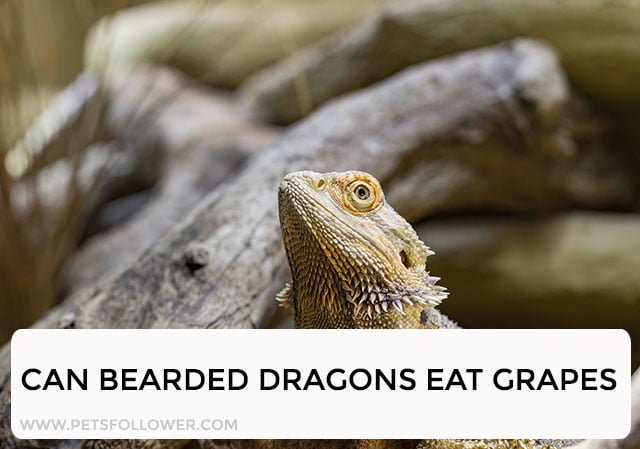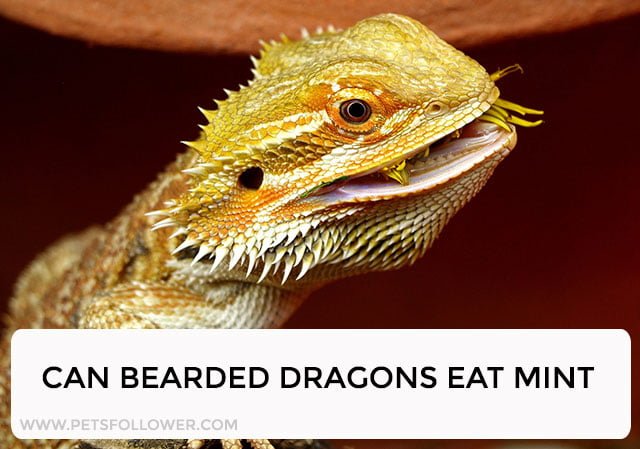Bearded dragons are popular pets known for their unique dietary needs. Many owners wonder if they can safely give kiwi to their reptiles. Bearded dragons can eat kiwi in moderation, as it provides some vitamins and nutrients that can be beneficial.
It is important to know that not all fruits are safe for bearded dragons. Feeding kiwi too often can lead to digestive issues due to its high sugar content. Learning how to include kiwi properly in a bearded dragon’s diet can help owners make better choices for their pets.
This article explores the benefits and risks of feeding kiwi to bearded dragons. It also offers tips on how to prepare this fruit to ensure it is safe and healthy for these reptiles.
Understanding Bearded Dragons
Bearded dragons are popular pet reptiles known for their unique traits and care needs. Understanding their dietary and metabolic requirements is essential for their health and well-being.
Dietary Requirements
Bearded dragons are omnivores. They eat both plants and insects, which helps them get the nutrients they need. A balanced diet usually includes greens, vegetables, and protein sources.
Fruits are good for occasional treats but should not be a major part of their diet. Some recommended greens include:
- Collard greens
- Kale
- Mustard greens
Insects like crickets and mealworms serve as great protein sources. It’s vital to ensure the insects are appropriately sized for the dragon. A diet high in calcium and low in phosphorus is essential for bone health.
Metabolic Needs
Bearded dragons have specific metabolic needs that depend on their age and activity level. Young dragons require more protein and calories because they are growing quickly. Adults often need a diet richer in plants.
These reptiles also need a proper temperature gradient in their habitat for digestion and metabolism. A basking area should be around 100-110°F (38-43°C) while the cooler side can be about 70-80°F (21-27°C).
Hydration is also crucial. While they can get moisture from their food, providing fresh water is important. Proper lighting, such as UVB light, is necessary for calcium absorption.
Kiwi as a Fruit Option
Kiwi is an interesting fruit choice for bearded dragons. It has a unique taste and certain benefits worth considering for their diet.
Nutritional Profile
Kiwi is rich in several important nutrients. It contains:
- Vitamin C: This vitamin supports the immune system.
- Vitamin K: It plays a role in bone health.
- Fiber: Important for digestive health.
One medium kiwi has approximately 42 calories and provides about 1 gram of protein. It also has a low sugar content compared to many other fruits. The balance of vitamins and minerals makes kiwi a nutritious snack.
Bearded dragons may enjoy the texture and flavor of kiwi. It’s best to offer it in small, manageable pieces to avoid choking.
Potential Health Benefits
Adding kiwi to a bearded dragon’s diet can offer several health benefits.
- Boosts Immunity: The high vitamin C content helps strengthen the immune response.
- Aids Digestion: The fiber in kiwi promotes healthy digestion, which is crucial for bearded dragons.
While kiwi provides these benefits, it should not be the main fruit in their diet. Moderation is key. It’s best to offer kiwi as an occasional treat rather than a regular food option. Being aware of portion size will help prevent any digestive issues.
Feeding Kiwi to Bearded Dragons
When considering kiwi for bearded dragons, preparation and serving size are crucial. Kiwi can offer nutritional benefits, but it must be done correctly to ensure safety and health for the reptile.
Preparation Techniques
Before feeding kiwi to a bearded dragon, proper preparation is important. First, the skin should be removed as it can be tough and hard to digest. After peeling, the fruit should be cut into small, bite-sized pieces. This helps the dragon eat without difficulty and minimizes the risk of choking.
It’s beneficial to wash the kiwi thoroughly to remove any pesticides or chemicals. Bearded dragons can be sensitive to additives, so ensuring the fruit is clean is key. Offering fresh kiwi is ideal, as canned or dried options may contain added sugars or preservatives that can be harmful.
Serving Size Recommendations
Serving size plays a significant role in feeding kiwi. A small piece, about the size of a fingernail, is often enough for a single feeding. It’s advisable to limit kiwi to a few times a month, as it has a higher sugar content compared to other fruits.
A chart can help guide serving sizes:
| Age of Bearded Dragon | Recommended Serving Size |
|---|---|
| Juvenile | 1 small piece |
| Adult | 1-2 small pieces |
Monitoring any reactions after feeding is important. If any signs of digestive upset occur, it may be necessary to reduce or eliminate kiwi from their diet.
Health Considerations
Feeding kiwi to bearded dragons requires attention to certain health factors. It’s crucial to know the risks involved and to recognize the signs of improper feeding.
Risks of Kiwi in the Diet
Kiwi contains high levels of sugar and acid. While these nutrients are fine in small amounts, too much can lead to digestive issues in bearded dragons. Excess sugar can cause obesity, while acids might upset their stomachs.
Another concern is the potential for stomach upset. Kiwi’s fibrous texture can be difficult for some dragons to digest. Introducing kiwi too quickly can lead to diarrhea and dehydration, which is serious for these reptiles.
Moderation is key. Limit kiwi to a small part of their diet. Some experts recommend offering it only as an occasional treat, not a staple.
Signs of Improper Feeding
Recognizing signs of improper feeding in bearded dragons is very important. If they show a lack of appetite or refuse to eat, it could indicate they are not tolerating the kiwi well.
Other warning signs include diarrhea or loose stools. An upset stomach can also lead to lethargy, where the dragon appears inactive or weak.
Monitoring their behavior after introducing new foods is essential. It helps ensure that the diet is appropriate. If any concerning symptoms occur, consulting a veterinarian is advised for the best care.
Dietary Variation and Enrichment
Bearded dragons benefit from a varied diet. This keeps their meals interesting and provides essential nutrients. Variety can help prevent boredom and promote healthy eating habits.
Key Food Groups:
- Vegetables: Offer leafy greens, bell peppers, and squash.
- Fruits: Include small amounts of fruits like kiwi, strawberries, and blueberries.
- Protein: Supply insects like crickets, mealworms, and dubia roaches.
Each food group serves a purpose. Vegetables provide fiber, fruits offer vitamins, and protein is crucial for growth.
Rotating different foods can enhance nutrition. It encourages the dragon to explore different textures and flavors. This can lead to better appetite and happiness.
Tips for Dietary Enrichment:
- Mix Textures: Combine soft fruits with crunchy vegetables.
- Introduce New Foods: Gradually add new items to their diet.
- Use Natural Foraging: Hide food in their environment to inspire hunting behavior.
Dietary enrichment not only supports health but also stimulates mental activity. Engaging bearded dragons in their food choices can make mealtime exciting.
Responsible Pet Ownership
Responsible pet ownership means providing the best care for a bearded dragon. This includes a proper diet, habitat, and health care.
A balanced diet is important. Bearded dragons need:
- Insects: crickets, mealworms, and roaches
- Vegetables: leafy greens like kale and collard greens
- Fruits: occasional treats like kiwi, but in moderation
Habitat setup is key. The enclosure should have:
- Proper heating and lighting
- A soft substrate, like reptile carpet
- Hiding places and climbing branches
Health care is crucial. Regular vet visits help prevent illness. Owners should watch for signs of sickness, like:
- Lack of appetite
- Lethargy
- Abnormal behavior
Socialization and Interaction are also part of good care. Bearded dragons are social creatures. They appreciate gentle handling and time outside their tank with supervision.
A responsible owner will learn about their pet’s needs. They must understand the importance of time, effort, and resources. This ensures the bearded dragon lives a long, healthy life.
Education is essential. Many resources, like books and websites, can provide valuable insights. Connecting with a vet or experienced owner can help too.
Frequently Asked Questions
Kiwi fruit can be a healthy treat for bearded dragons, but there are important details to know. Understanding what fruits are safe and which ones to avoid helps keep bearded dragons healthy.
Is kiwi fruit safe for bearded dragons to consume?
Yes, kiwi fruit is safe for bearded dragons to eat in moderation. It provides vitamins and hydration. However, too much can upset their stomach.
What kind of fruits are harmful to bearded dragons?
Some fruits are harmful, including citrus fruits like oranges and lemons. These can cause digestive problems. Fruits with high sugar content, like grapes, should also be limited.
Are there any fruits that bearded dragons can eat on a daily basis?
Bearded dragons can eat fruits like strawberries and blueberries, but not every day. These are better as occasional treats. Leafy greens and vegetables should make up most of their diet.
Can bearded dragons safely eat the skin of a kiwi?
The skin of a kiwi is not toxic but may be tough for bearded dragons to chew. It is best to peel it off before feeding. This makes it easier to digest.
What should never be included in a bearded dragon’s diet?
Bearded dragons should not eat avocados or rhubarb. These are toxic and can cause serious health issues. Avoid feeding them insecticides or pesticides as well.
Can bearded dragons have golden kiwi without any health risks?
Golden kiwi is similar to green kiwi and safe in moderation. It offers different nutrients. Just like with green kiwi, it is best to feed it sparingly.











